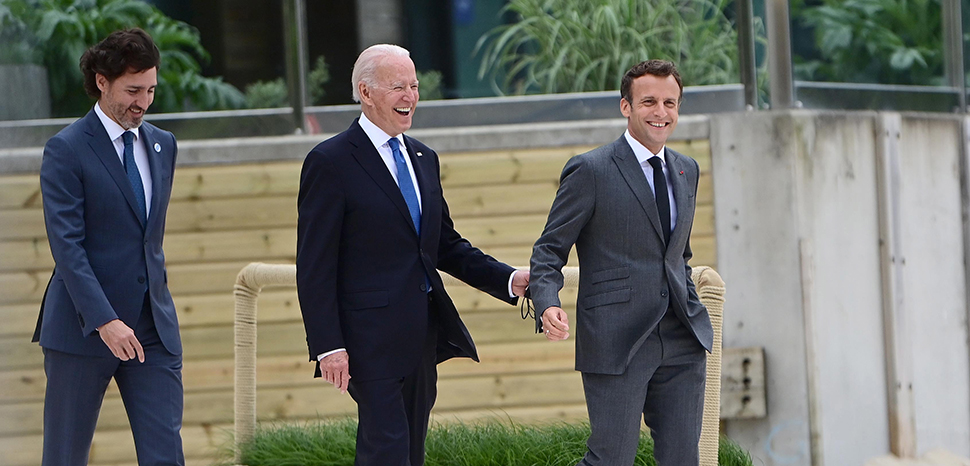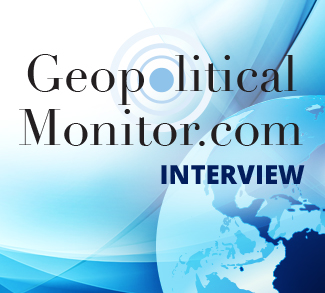Most Europeans regarded Joe Biden as a conquering hero when he overcame Donald Trump, hailing him as the calm, cool child who knocked the big-mouthed bully out of the schoolyard.
What EU leaders anticipated was the Biden they had met on his several trips abroad and who participated in the annual Munich Security Conference on a regular basis. The Biden who was multilateralist, Europhile, and keen on transatlantic relations.
When Biden announced “America is back” at a special virtual Munich Security Conference to commemorate the start of his administration, European leaders did not imagine it was actually a return to the arrogant exceptionalism that has long characterized Washington’s attitude to the EU and NATO.
A case in point is AUKUS, a security deal through which the United States and the United Kingdom will equip Australia with nuclear-powered submarines. Many saw the agreement as a slap in the face for the EU because it resulted in the termination of a massive contract for Australia to buy French-built submarines.
At a press conference last week, Josep Borell, the EU’s foreign policy chief, raised grave concerns about AUKUS. “Before coming here, on the same day that I was presenting the European Union’s Indo-Pacific strategy, the United States, Australia, and the United Kingdom were announcing their Indo-Pacific defense alliance at the same hour,” Borrell stated. “It’s clear that this isn’t simply about a submarine deal. It has far-reaching ramifications for our ties with the United States.”
“The absence of communication and conflict amongst close partners has produced genuine difficulties,” he continued, calling it a “bad image of strong ally coordination” and “bad for the West.”
“The work is growing more entropic,” Borrell added, echoing UN Secretary-General António Guterres’ remarks. You’ve heard of the term entropy, which means “greater chaos.” There will be more multipolarity and less multilateralism. The globe used to be bipolar, then unipolar, and now it’s multipolar. As a result, there’s a sense of disarray, with new actors asserting themselves more and more.”
According to Borrell, Europe can no longer rely on America to lead.
“The United States has made it perfectly clear not only in President Biden but also in Trump and Obama, that they will leave and stop fighting other people’s wars,” he added.
“Europeans must consider becoming a geopolitical actor,” Borrell said, adding that “our power can only come from our union since each member of the European Union alone does not have this ability, dimension, or power to truly influence on this new world.” “We can do it together.”
The usual issues that national governments have in determining who to work with within the EU, as well as the continued lack of a US ambassador due to Senate confirmation delays for Biden’s choice, Mark Gitenstein, are adding to the difficulties between Brussels and the White House. Denise Campbell Bauer, Biden’s candidate for ambassador to France, is also awaiting Senate confirmation, for instance.
Last Wednesday, President Joe Biden talked for the first time with French President Emmanuel Macron since the diplomatic crisis erupted. Following the meeting, Macron and Biden in a joint statement “agreed that the situation would have benefited from open talks among friends on topics of strategic significance to France and our European partners.”
While Macron appeared to gain some ground in that meeting, gaining what looked to be Biden’s backing for the EU’s development of stronger military capabilities, the entire incident further reaffirmed European leaders’ fears that Biden would not be the president or partner they had hoped for.
Certain EU officials expressed optimism that France might use Biden’s support for a stronger and more autonomous EU military stance to persuade some EU nations, particularly in Eastern Europe, who have long resisted so-called “strategic autonomy” for fear of undermining NATO and weakening US commitment.
President of the European Council Charles Michel, who earlier this week accused Biden of lacking devotion and openness during a press conference in New York, also made his official statement to the United Nations General Assembly, which had been reworked to emphasize the EU’s strategic independence.
Michel used a former United Nations Secretary-General as an example. “Kofi Annan once remarked, ‘Begin in your own neighborhood to become a good citizen.’ In this sense, I’d want to clarify why the European Union wants to strengthen and become more strategically independent while maintaining an open market,” Michel added. “Stronger not merely for its own sake, but also to contribute more effectively to a better world.”
Michel said, “More than ever, the European Union is supporting the rules-based international order and collaboration based on universal principles.” “To protect a better world, the European Union wants to be stronger, more independent, and firmer.”
In his address to the General Assembly on Friday, Michel stated unequivocally that the EU was closer to Washington than Beijing, but he also stated that in any struggle of great powers, Brussels will forge its own course.
“Since becoming President of the European Council, I’ve been asked a simple but cruel question: Which side is the European Union on in the emerging competition between the United States and China?”
Michel responded to his own question by saying, “We are closely connected with the United States.” “We share goals, values, and a bond of affection that has been reinforced by history’s challenges. Our connection is still expressed in a crucial transatlantic partnership today. However, this does not exclude us from having differing perspectives or interests.”
Biden wrapped up his first high-level United Nations General Assembly week on Friday by gathering the leaders of “the Quad” — Australia, India, Japan, and the United States — at the White House. By emphasizing his focus on Asia while ignoring Europeans, Biden made it perfectly clear that instead of leading a revitalized Western alliance with Berlin, Paris, and Brussels as significant partners, he intends to lead smaller, regional coalitions centered on American interests.
The Quad continued with Washington’s plan to build a global technology supply network with like-minded, democratic countries – and without Chinese engagement even as European capitals have refused this anti-China strategy for fear of endangering economic ties with China and fueling the US-China tech competition.
For example, in the field of technology, the United States’ Quad partners have shown a greater willingness to align with Washington’s stance on China — exactly on areas where it has struggled to persuade European allies of its viewpoints. This year, India blocked Chinese applications such as TikTok, WeChat, and others, while Australia and Japan have already shown to be strong partners in Washington’s campaign against Huawei and other Chinese companies.
In a statement, the Quad leaders said, “The occasion of the Quad summit provides a chance to refocus ourselves and the world on the Indo-Pacific and our vision for what we want to achieve.” “We also welcome the September 2021 EU Strategy for Indo-Pacific Cooperation.” However, it was apparent that EU nations were among those being “refocused,” rather than being there to assist in leading the effort.
This is not the Joe Biden Europe was hoping for.
The views expressed in this article are those of the authors alone and do not necessarily reflect those of Geopoliticalmonitor.com




